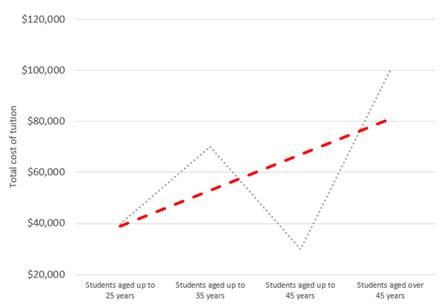Why undergraduates are getting in early on MBAs

An MBA (Master of Business Administration) was once reserved for directors, CEOs and those with years of experience in their field. However, a growing number of undergraduates are bucking the trend by pursuing an MBA shortly after completing their bachelor degree, with many students well under the age of 25!
There are varying motivations for tackling a qualification of this nature at such a young age and we've examined what is driving today's MBA hopefuls.
The market is more competitive than ever
While there might be a limited number of job descriptions that list an MBA as a mandatory qualification, an MBA demonstrates a tangible level of commitment and intelligence. Once held by only high profile businesspeople, MBAs are becoming more mainstream every year. At first glance, a prospective employee with an MBA is going to look better on paper compared to an applicant without one. For many top roles in large organisations, an MBA is fast becoming a baseline requirement.
It can be the best time to do one
Once you finish university and begin working full-time, the prospect of returning to study can look less than attractive. After years of mixing casual employment and study, it can be tough to sacrifice a decent salary. However, some graduates see this as the main reason to begin an MBA as soon as possible, because if they get into the workforce, they will likely never study again.
Additionally, statistics indicate that the younger you are, the less money you pay for an MBA. On average, students up to the age of 25 spend roughly $40,000 on an MBA, compared with those over 45-years-old who can pony up nearly $100,000.

While this has plenty to do with the type of business school the student chooses to attend, there's no doubt it is a strong incentive to pursue an MBA sooner rather than later.
What does this mean for business schools?
The continual escalation of what constitutes 'qualified for a role' means that younger and younger students will seek post-graduate degrees immediately after completing their bachelors. There is an opportunity for business schools to cater to this demographic by addressing the cost of completing an MBA and offering a wider range of courses for different age groups and levels of experience.

